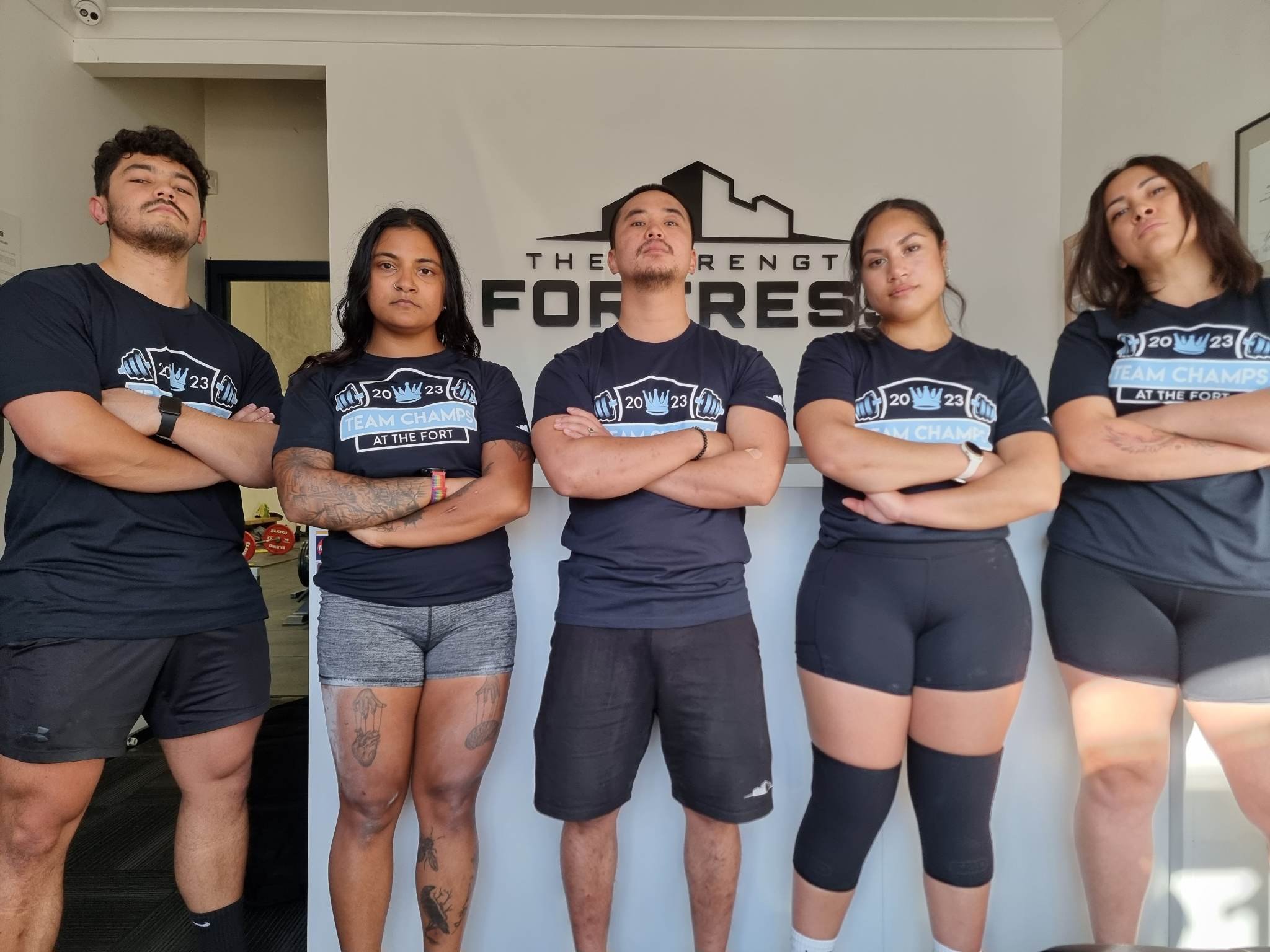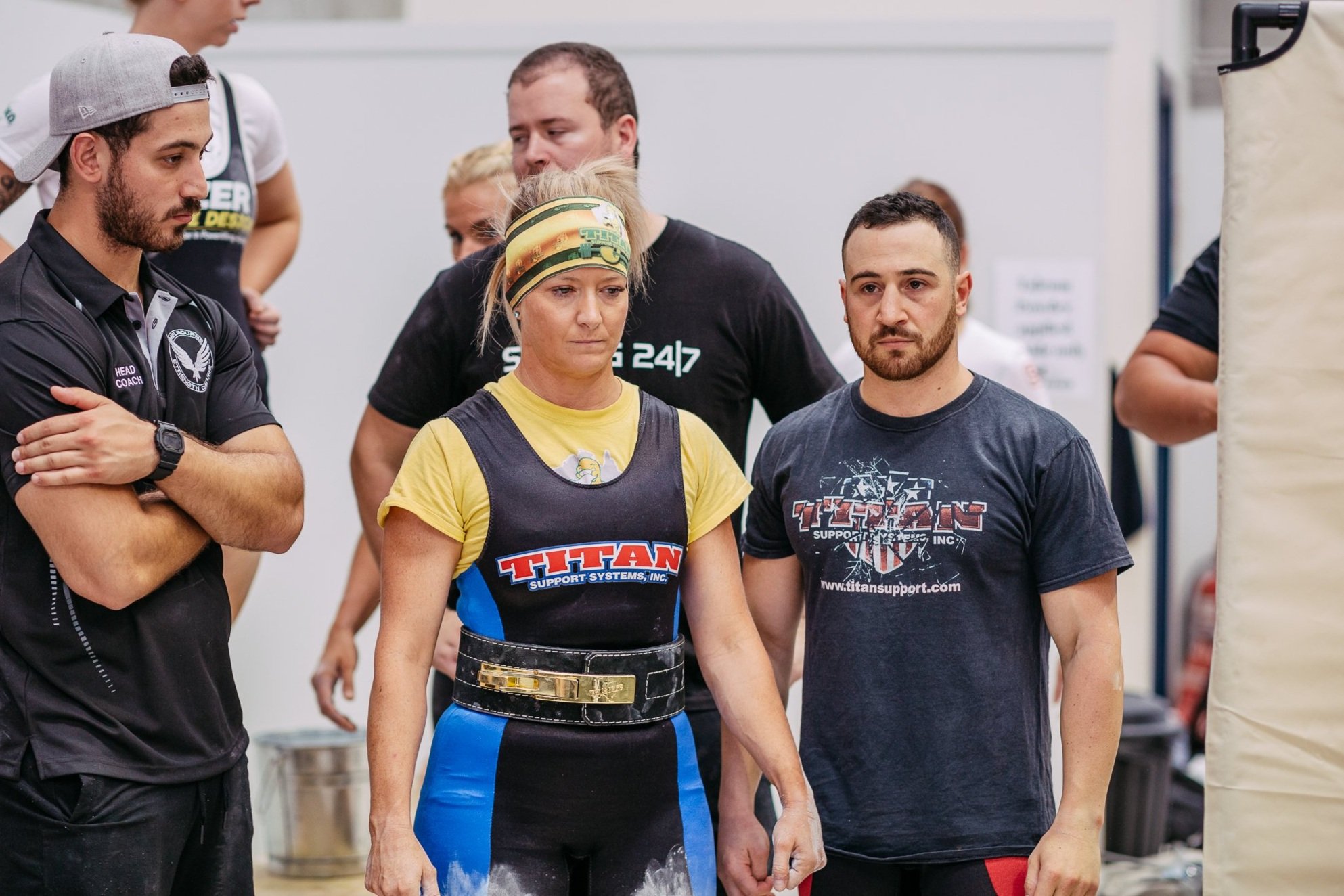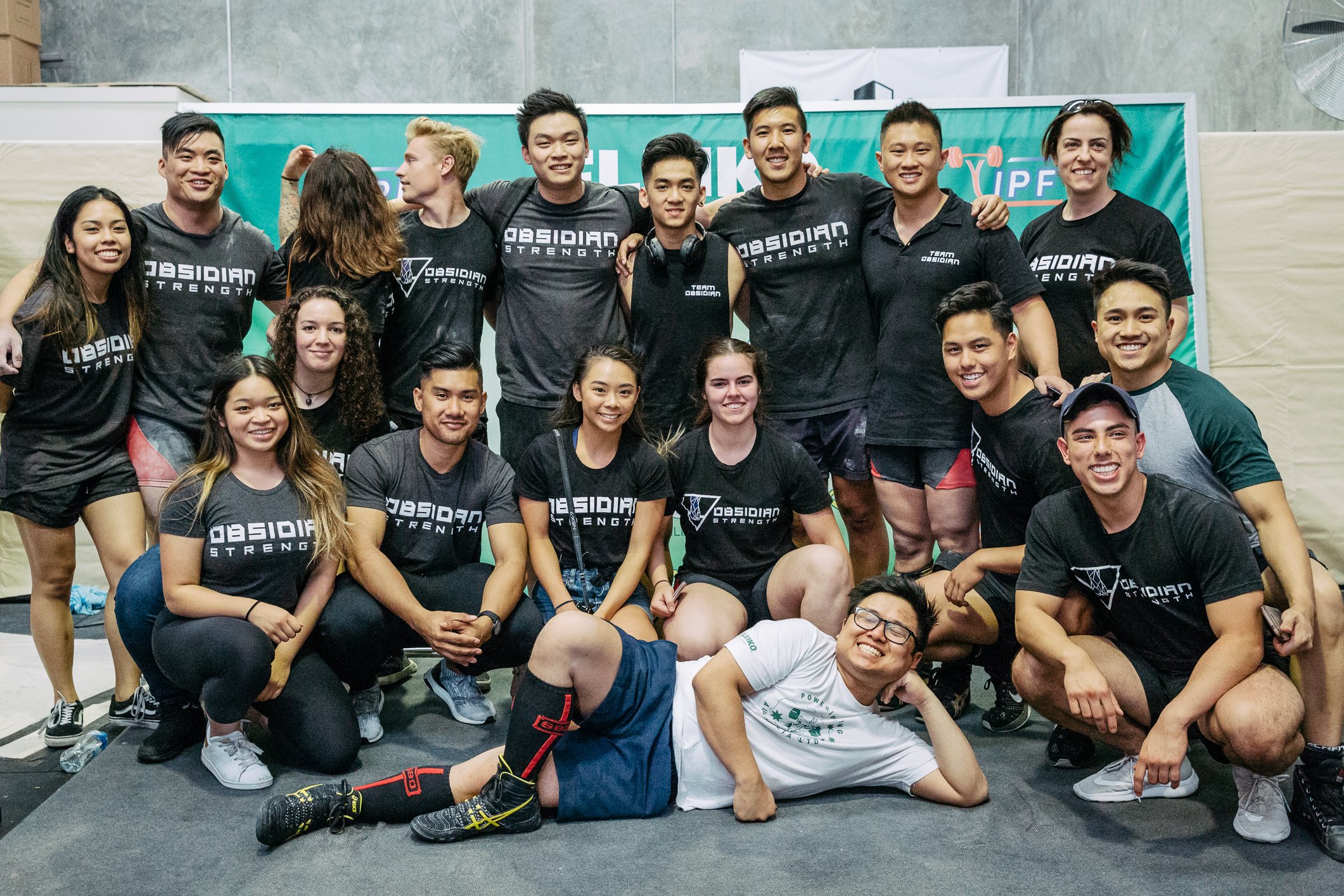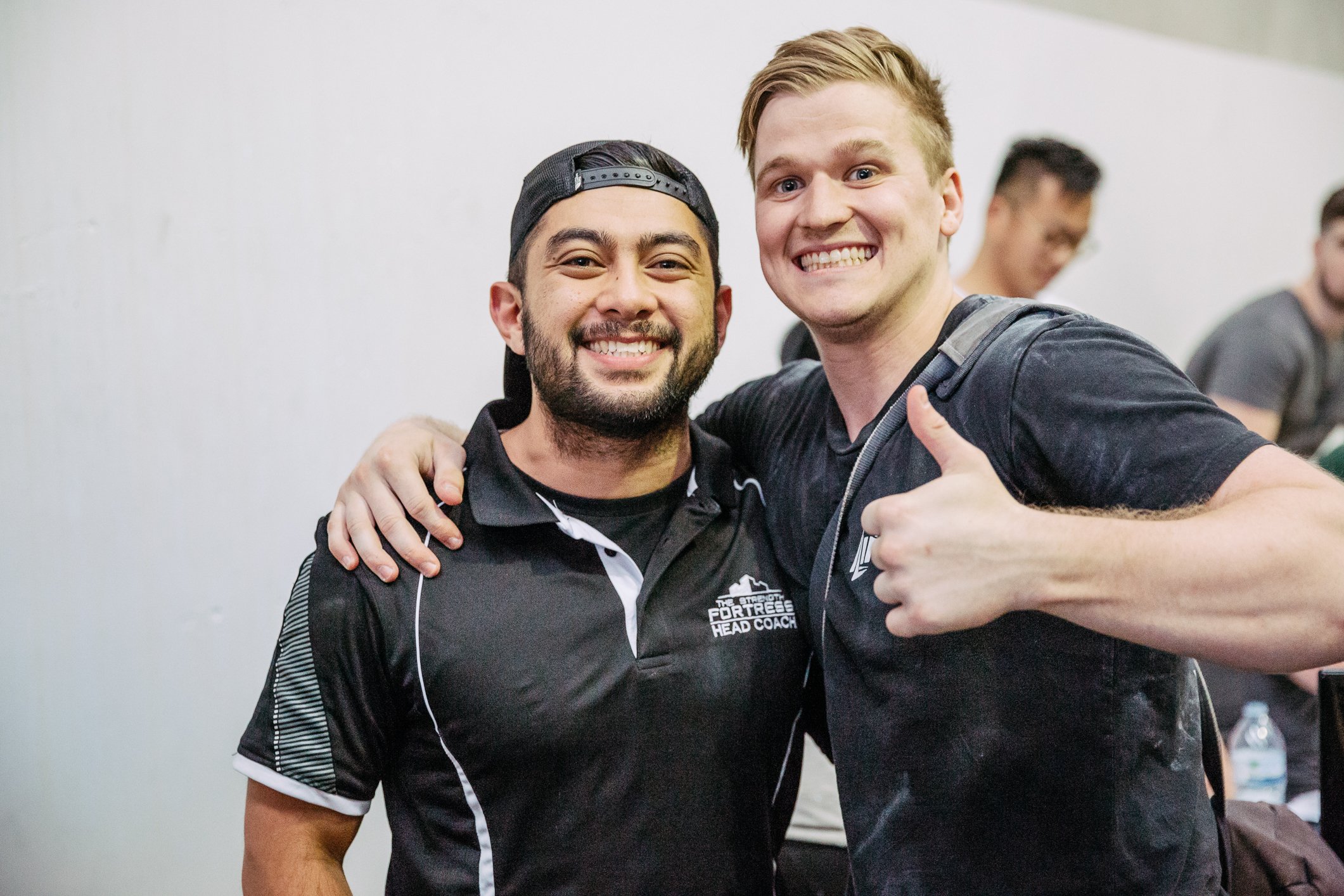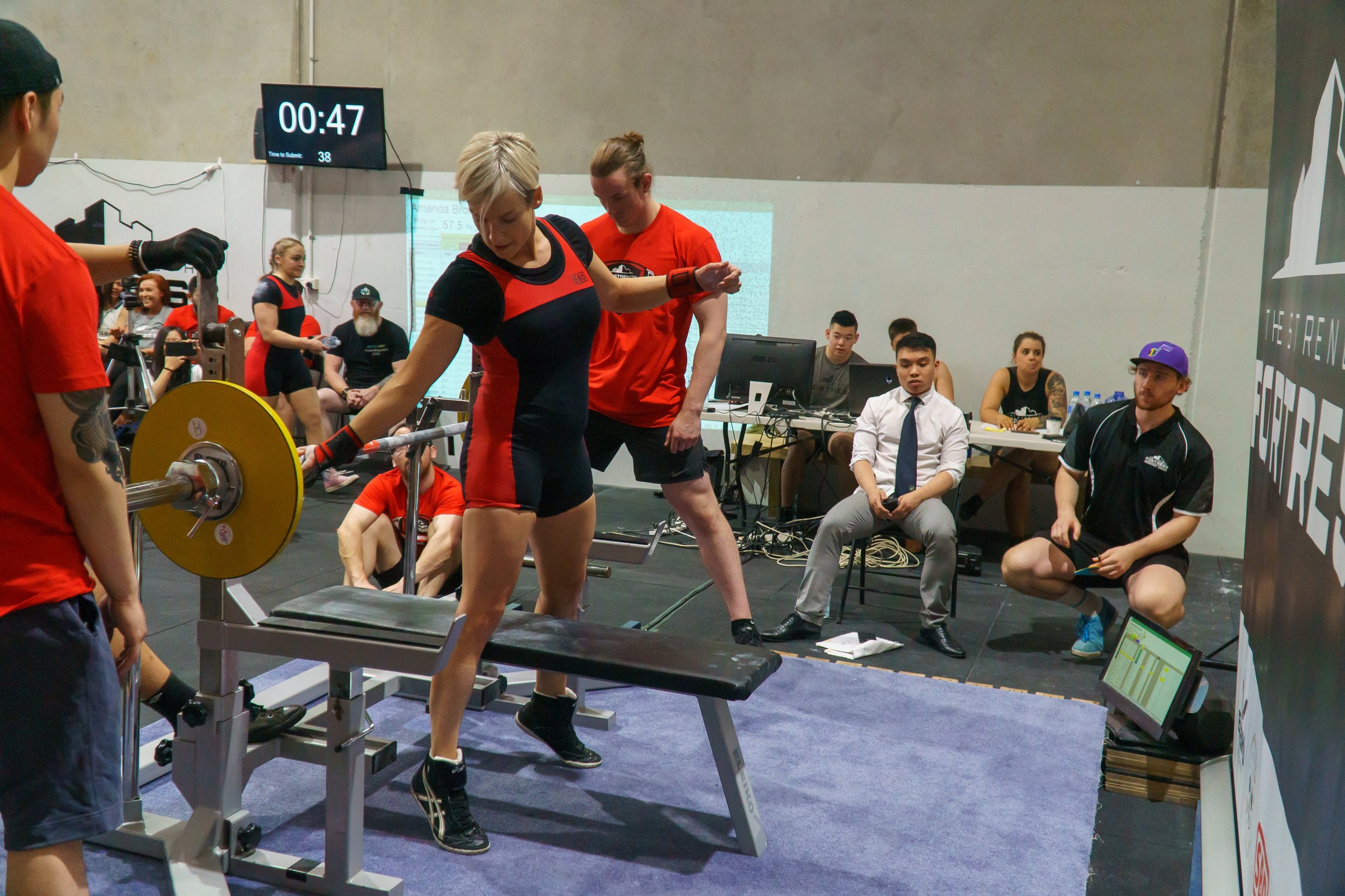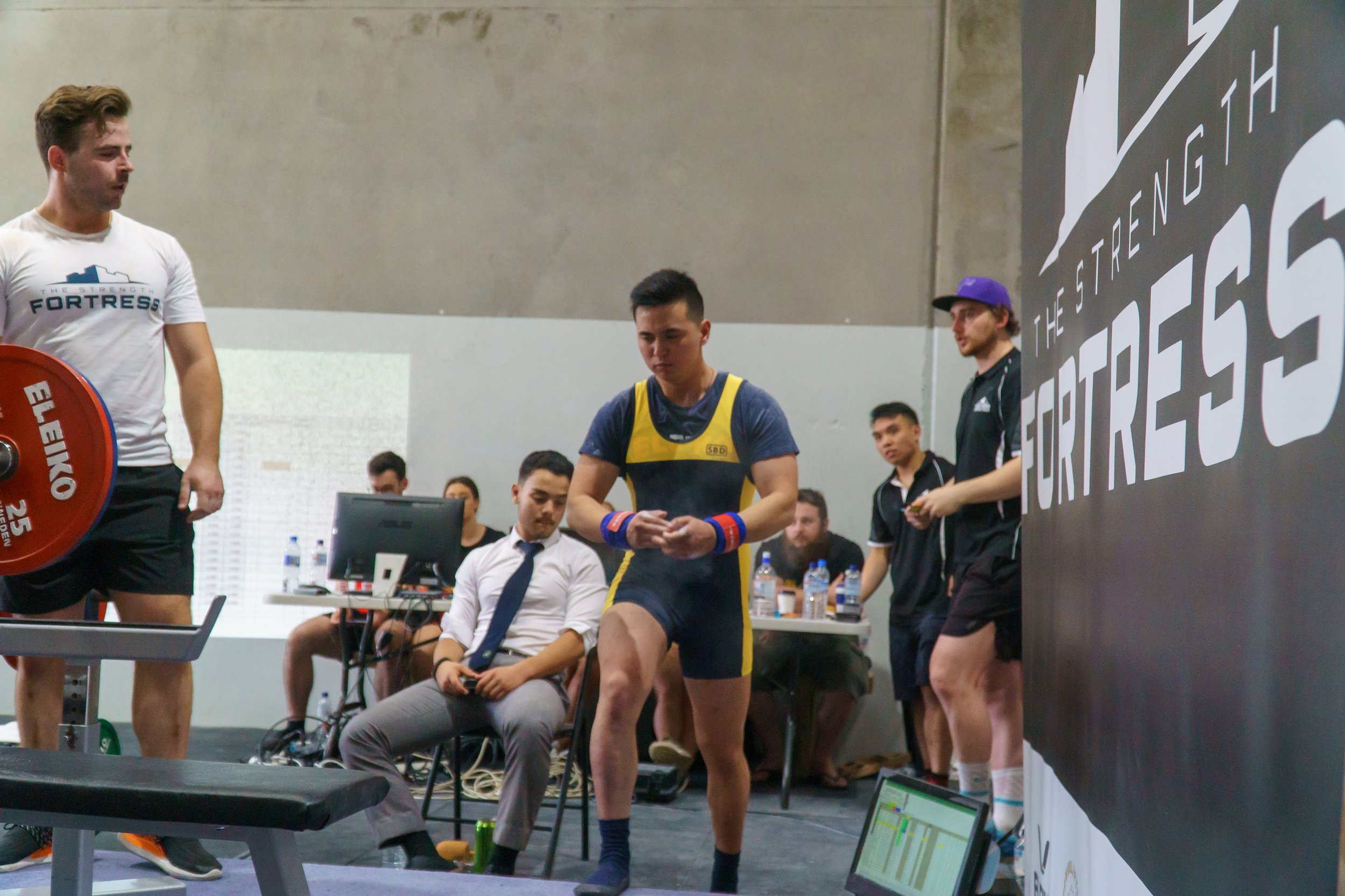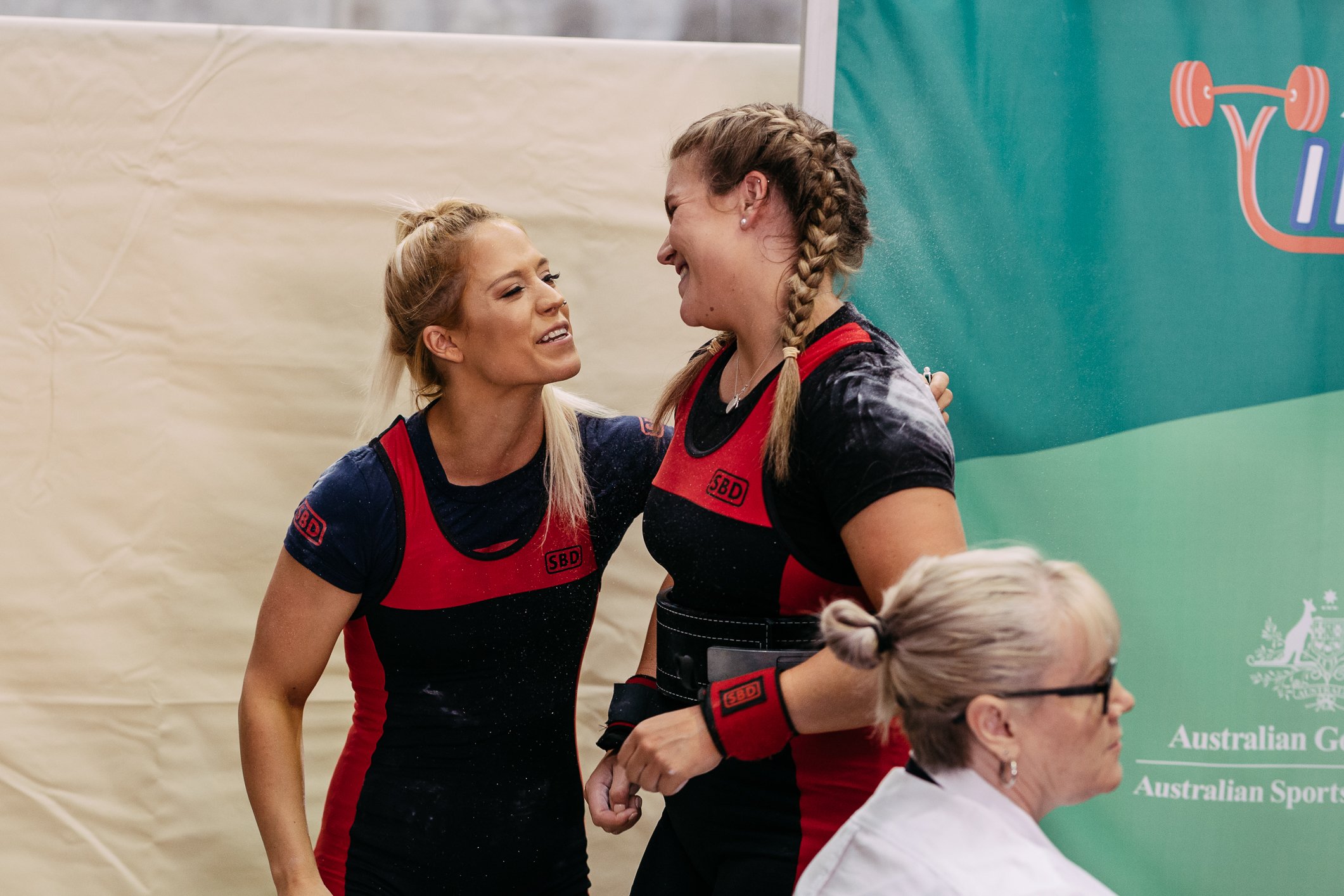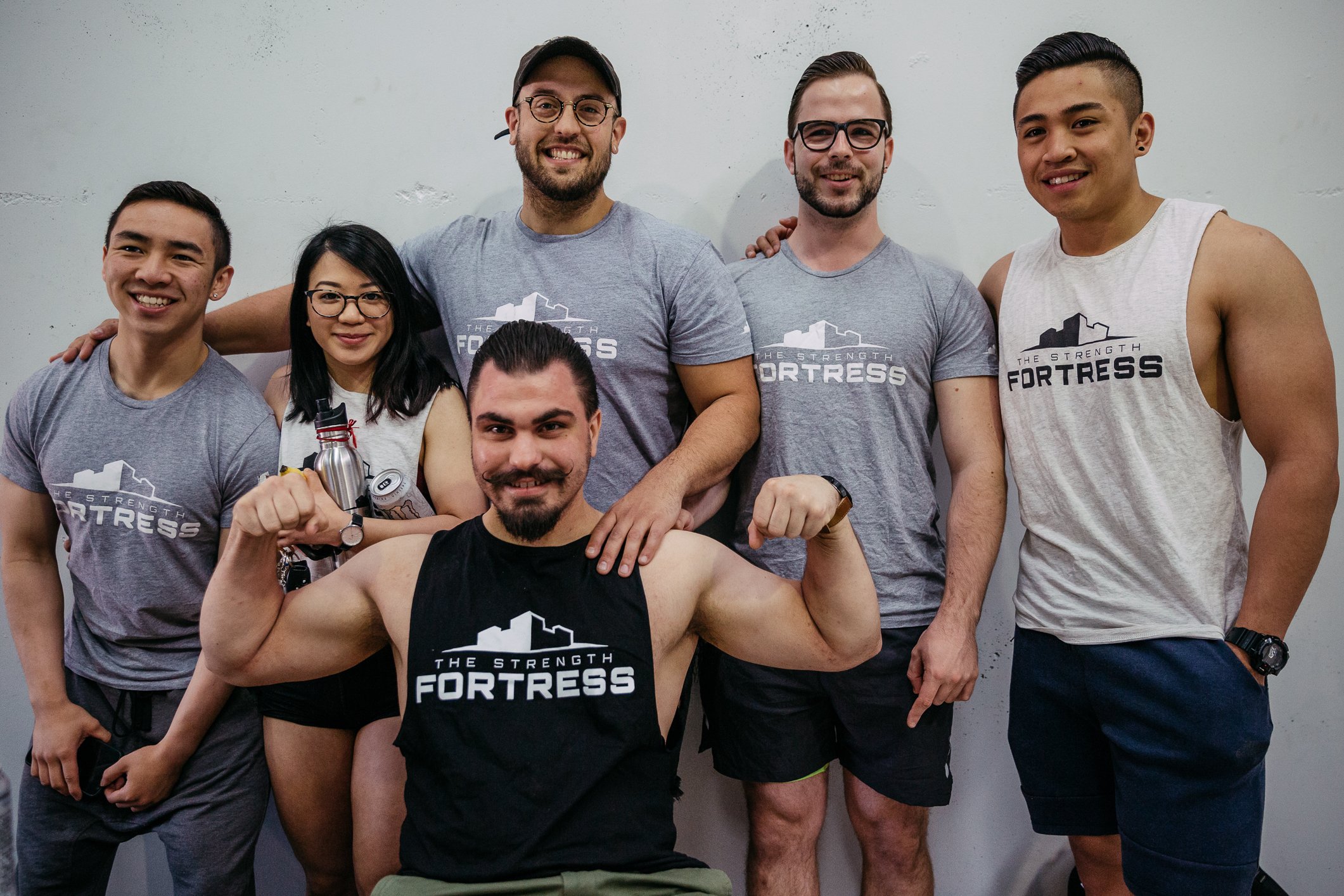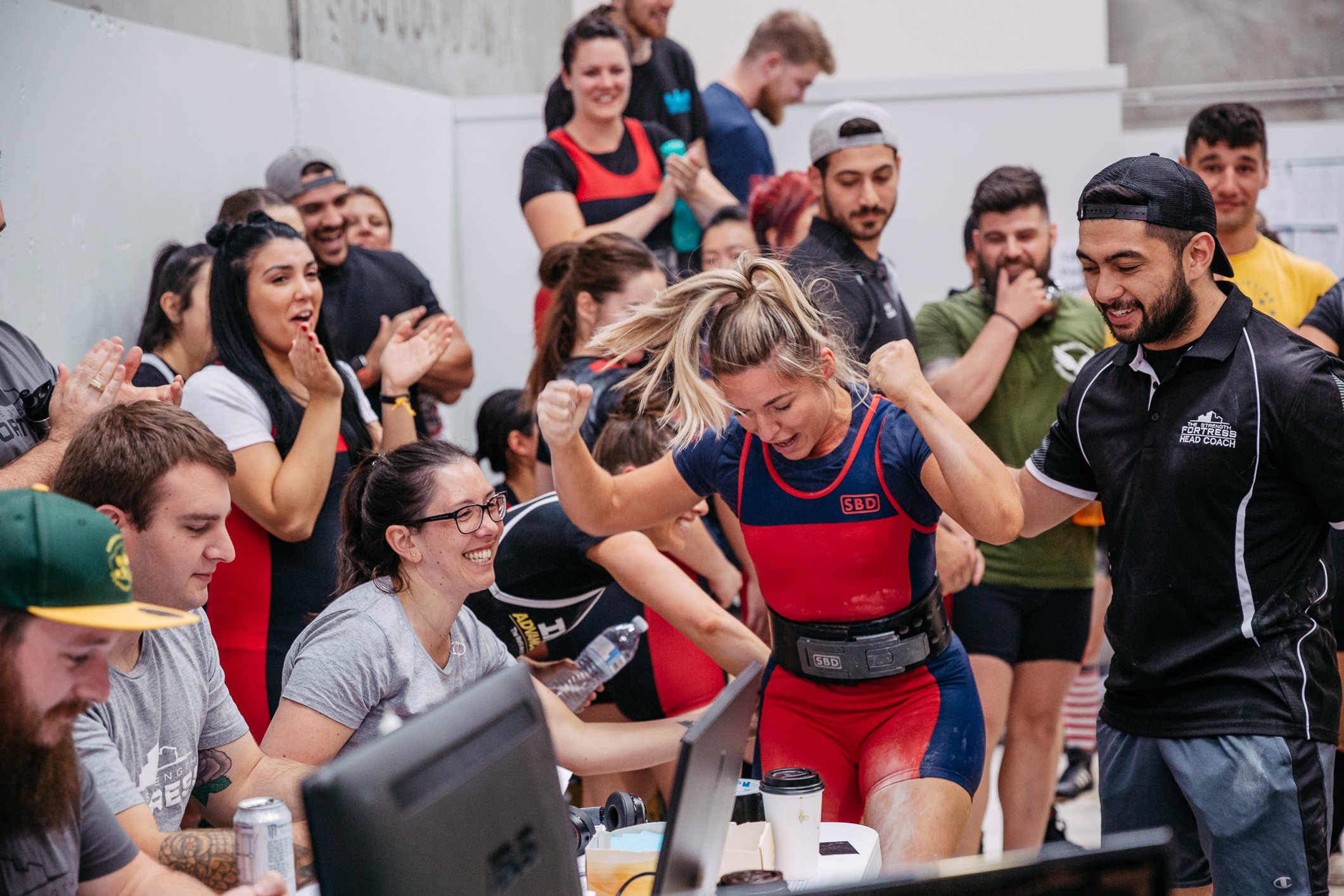Why the Team Champs?
As a teenager, I played Australian Rules Football for about five years. When I decided to leave football to take powerlifting more seriously, I quickly realised there were a number of things that I missed, and that I should’ve appreciated more at the time. The cold air on a winter’s night of training, the smell of freshly cut grass, the energy and adrenaline of a tightly fought game. But there was one thing I missed more than anything — training with friends.
Every Tuesday and Thursday, training at 6:30pm was a blast. Getting to see your friends, with whom you already have a shared interest, training together, going to games together and drinks on weekends together were the perfect social outlet outside of work and studies. Going from that to training in a gym, on my own was kind of… jarring. Sure I made some friends in the gym but for the most part I was just there on my own, doing my own thing.
Then I really got into powerlifting. Some friends and I unofficially started a mini strength club at the gym we were training at where we would train together every Sunday afternoon. I soon after joined Melbourne Uni Powerlifting Club where I was first introduced to the club-coaching model that they offered. I slowly realised that powerlifting too can be social and powerlifting too can be a “team sport” — complete with teammates, a shared coach and shared training time.
And so over the years, this value has not only stayed with me but has continued to grow inside of me. I saw the value of making powerlifting a social sport, of encouraging athletes to train together and of fostering this inter-athlete relationship.
After all, a push for a “team” aspect is common in many “individual” endeavours from the amateur level right up to the elite. Athletics have relay events, tennis has the David Cup, chess have four-player team championships and even road cycling is actually a team sport, by default, in case you didn’t realise. That is to say that there has always been huge value and incentive for creating a team based system in sport. There is demand as an athlete, there is demand as a spectator and there is demand as a coach. So pushing forward with a team based event in powerlifting seemed at least to me, a very natural progression.
The first TSF Team Event took place at the end of 2017 in what was called the “TSF End of Year Challenge”. It was a normal competition with normal entry formats but a scoring system for any groups of people who entered together to win a prize of $500. It was sort of a test event, to see if this type of thing would be popular or if even worthwhile doing. Then in 2018 and 2019 we hosted our first and second Team Champs. These events were huge successes with many clubs and coaches putting forward their own representative teams. The 2019 Team Champs were in particular a resounding success with 14 teams competing in a closely fought battle. The momentum was high and each year was growing until the dreaded 2020 pandemic put things into a spiral. In 2020 and 2021 we weren’t able to host the Team Champs in any capacity and even in 2022 there were challenges that didn’t allow us to host the event.
And so it is now, a week out from the 2023 Team Champs, that I’m able to look back on where this event has spawned from and to what scale it is and will grow to become. I want to share with you some of the philosophies and ideas that have underpinned and inspired The TSF Team Champs.
Encouraging a team culture within clubs.
While in 2023 we’re spoiled for choice if we’re looking for a powerlifting gym in any of the major cities of Australia, this hasn’t always been the case. In 2012, there were no “powerlifting clubs” other than some minority clubs sprinkled around Australia and often times these clubs were actually weightlifting or Crossfit gyms with a couple of powerlifters that trained there too.
Then, from about 2015, the dedicated “powerlifting gym” started to grow in popularity. Adonis Athletics in Sydney were kind of already on this path, and so too were a number of others but it was only really from this point that more specialised strength facilities really started to become commonplace. As a means of growing their internal culture of course, these clubs and gyms would rally their members for intraclub support. Oftentimes members of these clubs would proudly wear their merch, brag about how their gym was the best and religiously follow the leadership within their community.
The Team Champs aims to continue to foster this culture and give clubs an event to send their lifters too. It aims to give these clubs a motivation for fostering their internal club culture and to develop a culture within each club. It also serves as a day to bring these different clubs together. To socialise, to network, to make new friends and to bring together the broader powerlifting community.
Sending teams to competitions.
When TSF first started sending members to comps, a comment I would often hear from referees or other competitors or the meet director themself was how loud and present our club was. I would always insist that we sent groups of lifters to comps — the more the merrier. In fact the first comp that we ever sent a team to was a competition at Avia Performance in November of 2017 where we sent fifteen (15!!) lifters. When a group of lifters from the same club all compete together, they have each other to rely on for support on the day. The athletes get a huge benefit as they’re often less nervous. The coach benefits because it takes pressure off them to have to regulate their lifter’s emotions when they can do it between themselves. The training partners too are more motivated to go show support at a competition where five of their friends are competing instead of just one. Comps are better when groups go together and the Team Champs is an extension of this philosophy that I have had since TSF opened its doors.
The first time TSF sent a team to a competition we took 15 lifters. AVIA Performance, November 2015.
Hosting other clubs at our gym.
In line with sending teams to comps, at TSF we love nothing more than hosting other teams at our venue. While we love sending our team to other clubs, we equally so love when other clubs send in a team of their lifters to our comps. It’s always awesome when you see the merch and supporter gear of a different club all seated together in the crowd and cheering for their teammates. Being able to put on a great experience for lifters from other clubs is our way of continuing to contribute to the wider powerlifting community in Melbourne and to show how great a powerlifting meet can be.
The Team Champs is like inviting people over for an evening of monopoly. We open our doors to our friends, inviting you all over for fun event. We are super competitive, we want to crush you and it will take nine hours.
The sub-elite.
There was a period probably from around 2015-2018 where prizes and prize money in competition started to become a bit of a thing. Local comps were starting to offer prizes to lure better lifters to their comps and this was a really positive step forward for powerlifting as a whole. However I saw a big problem with this and that was that the same handful of top lifters were simply winning all the prizes and collecting the cash. While there’s nothing wrong with the elite winning the prizes, at local meets, at grass roots meets, aren’t we supposed to be encouraging competitiveness and participation? What’s the point of entering a meet that has prize money when you know you’re not gonna win anyway.
The Team Champs aims to address this by distributing prizes in a different way. While there is a small trophy for “best male” and “best female” lifters, all the prize money is devoted to the team award and so no individual performance can take home the prize. It gives an opportunity for what I call the “subelite” to be in the mix, to contribute and to be competitive. While a 400 DOTS probably won’t win you best lifter at most local events, a good performance might just be enough to score 2nd place in your category instead of 3rd place, and that extra point to the team score could be the difference between winning and losing the Team Championship (in fact only 2 points separated 1st and 3rd in the 2019 Team Champs). The Team Champs is an opportunity for every athlete to feel like their performance matters and for every athlete to contribute to the result.
Representing your club.
After the success of the 2017 and 2018 events, the pending 2019 Team Champs was set to be an absolute cracker. I think I did a god job of hyping the event long before it was to take place and as such there was a lot of speculation within the gym as to who would be representing TSF at this event. One of the most exciting things for me as a coach in that year was to approach the four lifters individually who I wanted to represent TSF and to tell them that I wanted them in the team. I know as an athlete, this was a special thing for many of them, to be chosen to represent their club.
I’m certain that small interactions like these are taking place too between other coaches and their lifters and giving your athletes this opportunity, to represent their club and coach, for whom they have so much pride and respect, is undoubtedly a special opportunity for these lifters.
Furthermore, it stands out as a very respectable goal for many of these “sub-elite” lifters that I referenced earlier. While many club-level athletes won’t ever win a nationals, earning their place to represent their club at The Team Champs is slowly becoming a very reasonable and valid goal.
The team that will be representing TSF in the 2023 Team Champs. From left to right: Greg, Edwina, Head Coach Josh, Sia and Alisa.
While I’m saddened that I won’t be able to attend this year’s edition of the Team Championships, I’m absolutely certain that it will go off without a hitch. The work Lizzie has put into making the 2023 Team Champs a success is incredible. I feel extremely fortunate and proud to have someone who has the same vision and passion for this event as I do.
If you’re reading this and are competing on March the 12th, I want you to know that you too are creating part of the history that The Team Champs is and will be. It is for athletes and teams like you that we host this event and I thank you for entering and representing your club as well as I know that you will. I wish you good luck.


